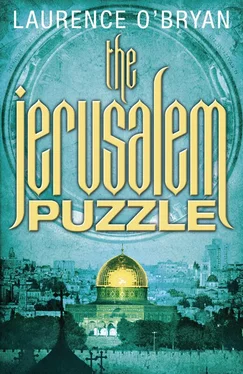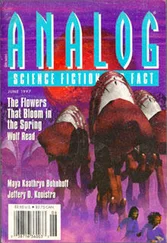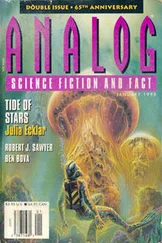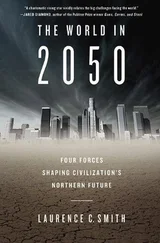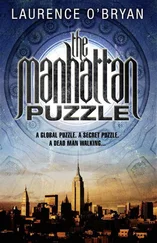LAURENCE O’BRYAN
The Jerusalem Puzzle
This novel is entirely a work of fiction. The names, characters and incidents portrayed in it are the work of the author’s imagination. Any resemblance to actual persons, living or dead, events or localities is entirely coincidental.
Avon
An imprint of HarperCollins Publishers Ltd.
1 London Bridge Street
London SE1 9GF
www.harpercollins.co.uk
First published in Great Britain by HarperCollins Publishers 2013
Copyright © Laurence O’Bryan 2012
Laurence O’Bryan asserts the moral right to be identified as the author of this work
Elaine AM Smith, HA Corby and Michael Robertson to be identified as the authors of their stories
A catalogue record for this book is available from the British Library
All rights reserved under International and Pan-American Copyright Conventions. By payment of the required fees, you have been granted the non-exclusive, non-transferable right to access and read the text of this e-book on-screen. No part of this text may be reproduced, transmitted, downloaded, decompiled, reverse engineered, or stored in or introduced into any information storage and retrieval system, in any form or by any means, whether electronic or mechanical, now known or hereinafter invented, without the express written permission of HarperCollins e-books.
Source ISBN: 9781847562890
Ebook Edition July 2013 ISBN: 9780007453313
Version: 2017-09-05
‘When the blast of war blows in our ears, then imitate the action of the tiger.’
Henry V Act 3, Sc. 1, Wm Shakespeare.
The best part of this story is true.
Table of Contents
Title Page LAURENCE O’BRYAN The Jerusalem Puzzle
Copyright
Epigraph ‘When the blast of war blows in our ears, then imitate the action of the tiger.’ Henry V Act 3, Sc. 1, Wm Shakespeare. The best part of this story is true.
Chapter 1 1 Flames burst into life with a whoosh. It was an unusually cold night for late February in Jerusalem. Lead-coloured clouds had been rolling in from the Dead Sea, east of the city, since midday. By ten o’clock that night the streets of the Old City’s Muslim quarter were deserted. Smells of cardamom coffee and kofta drifted from shuttered windows. At one minute past ten, the stepped passage of Aqabat at-Takiya echoed loudly with the sound of footsteps. Two men dressed in dusty suits and chequered keffiyehs were hurrying down the wide steps. The high masonry walls on each side gave the alley the appearance of a gap between prisons. As the men approached the arched entrance to Lady Tunshuq’s Palace they saw orange flames coming from the recessed doorway. They stopped, waited a few seconds pressed against the wall, then moved slowly forward, craning their necks until they could see what was burning. Whoever had set the fire was long gone into the warren of narrow alleys all around. As a gust of wind blew the flames up, they saw the body burning fiercely in front of the double-height, green steel doors. Then a throat-clogging smell of burning flesh hit them. The man who’d seen the flames first was already talking on his phone. He could feel the heat from the fire on his face, though they were fifteen feet away. He coughed, backed away. The acrid smell was getting stronger. They watched as the flames rose. The wail of an ambulance seemed far away as blackened skin slipped from the man’s face. Tendons and muscle glistened in the flames. A white cheekbone poked out. Above the head, paler smoke was drifting where hair should have been. The sickly smell was all around now. A man shouted from a half-shuttered window high up. A woman wailed to God. A spurt of hissing flames reflected on the alternating light and dark bands of Mamluk masonry and the stone stalactites hanging above the doorway. The sound echoed down the long passage.
Chapter 2
Chapter 3
Chapter 4
Chapter 5
Chapter 6
Chapter 7
Chapter 8
Chapter 9
Chapter 10
Chapter 11
Chapter 12
Chapter 13
Chapter 14
Chapter 15
Chapter 16
Chapter 17
Chapter 18
Chapter 19
Chapter 20
Chapter 21
Chapter 22
Chapter 23
Chapter 24
Chapter 25
Chapter 26
Chapter 27
Chapter 28
Chapter 29
Chapter 30
Chapter 31
Chapter 32
Chapter 33
Chapter 34
Chapter 35
Chapter 36
Chapter 37
Chapter 38
Chapter 39
Chapter 40
Chapter 41
Chapter 42
Chapter 43
Chapter 44
Chapter 45
Chapter 46
Chapter 47
Chapter 48
Chapter 49
Chapter 50
Chapter 51
Chapter 52
Chapter 53
Chapter 54
Chapter 55
Chapter 56
Chapter 57
Chapter 58
Chapter 59
Chapter 60
Chapter 61
Chapter 62
Chapter 63
Chapter 64
Epilogue
Keep Reading
The Istanbul Puzzle - an extract
An Interview with Laurence O’Bryan
Visiting Jerusalem
Authonomy short story winners’ stories
In the Name of Science
Murder in the Morning
Sticks and Stones
About the Author
By the Same Author
About the Publisher
Flames burst into life with a whoosh. It was an unusually cold night for late February in Jerusalem. Lead-coloured clouds had been rolling in from the Dead Sea, east of the city, since midday. By ten o’clock that night the streets of the Old City’s Muslim quarter were deserted. Smells of cardamom coffee and kofta drifted from shuttered windows.
At one minute past ten, the stepped passage of Aqabat at-Takiya echoed loudly with the sound of footsteps. Two men dressed in dusty suits and chequered keffiyehs were hurrying down the wide steps.
The high masonry walls on each side gave the alley the appearance of a gap between prisons. As the men approached the arched entrance to Lady Tunshuq’s Palace they saw orange flames coming from the recessed doorway.
They stopped, waited a few seconds pressed against the wall, then moved slowly forward, craning their necks until they could see what was burning. Whoever had set the fire was long gone into the warren of narrow alleys all around.
As a gust of wind blew the flames up, they saw the body burning fiercely in front of the double-height, green steel doors. Then a throat-clogging smell of burning flesh hit them. The man who’d seen the flames first was already talking on his phone. He could feel the heat from the fire on his face, though they were fifteen feet away. He coughed, backed away. The acrid smell was getting stronger.
They watched as the flames rose. The wail of an ambulance seemed far away as blackened skin slipped from the man’s face. Tendons and muscle glistened in the flames. A white cheekbone poked out.
Above the head, paler smoke was drifting where hair should have been. The sickly smell was all around now. A man shouted from a half-shuttered window high up. A woman wailed to God.
A spurt of hissing flames reflected on the alternating light and dark bands of Mamluk masonry and the stone stalactites hanging above the doorway. The sound echoed down the long passage.
I turned the radio down. Verdi’s ‘Chorus of the Hebrew Slaves’ had passed its climax.
‘This website says Abingdon is the oldest continuously occupied town in Britain.’ I looked up. A squall of rain hit the side of the car.
‘It says people have lived there for 6,000 years. That’s got to make for one hell of a long list of mayors at the town council.’ It was hard reading while Isabel was driving, not just because it was a rainy morning in February, but also because the road we were on, the A415 from Dorchester, twisted and turned at that point under a high canopy of trees.
Читать дальше
